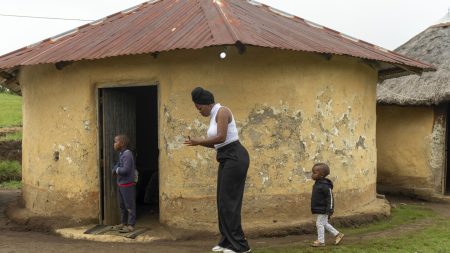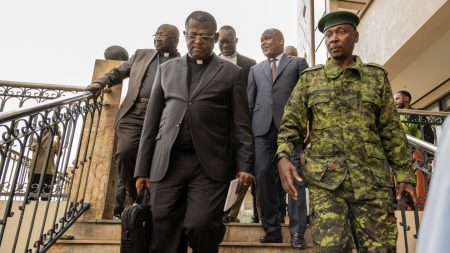The Anglican Church’s Failure to Address Sexual Abuse Allegations: A Case of Neglect and Cover-Up
Introduction: The Case of John Smyth and the Anglican Church’s Accountability
The Anglican Church in South Africa has recently admitted to its failure in addressing sexual abuse allegations against John Smyth, a former member who was accused of abusing children in the UK and Zimbabwe during the 1970s and 1980s. Smyth later fled to South Africa, where he continued his involvement with the church until his death in 2018. The revelations came to light after an independent review in November found that the Church of England had covered up Smyth’s horrific abuses, which included sexual, physical, and psychological mistreatment of over 100 children and young men during Christian summer camps. The report highlighted the church’s negligence in not reporting Smyth’s activities, despite the high risk of him reoffending.
The Church’s Inaction and Cover-Up: A Betrayal of Trust
The South African panel, led by a retired judge, released its report in December, criticizing the Anglican Church for not taking appropriate action against Smyth. The panel found that while there was no evidence of Smyth committing similar abuses in South Africa, the church should have reported him to the authorities given his history. The report also revealed that the church failed to share critical information about Smyth’s past with another church he joined in 2014, despite receiving warnings in 2013 about his abuses in the UK and Zimbabwe. Archbishop Thabo Makgoba, the head of the Anglican Church of Southern Africa, acknowledged the church’s failure, stating that they had not passed on the warnings, putting congregants at risk.
John Smyth’s History of Abuse and the Church’s Knowledge
John Smyth’s history of abuse dates back to the 1970s and 1980s, when he volunteered at Christian summer camps in the UK and Zimbabwe. During this time, he abused 30 boys and young men in the UK and 85 in Africa over five decades. Smyth’s actions were first brought to light in Zimbabwe, leading him to flee to South Africa in 2001. Despite his notorious past, he was allowed to work in parishes in South Africa until 2014. The church’s knowledge of Smyth’s abusing behavior was clearly documented, yet they failed to take the necessary steps to protect vulnerable individuals. This inaction not only allowed Smyth to continue his abusive behavior but also placed more people at risk.
The Broader Implications: A Culture of Silence and Cover-Up
The case of John Smyth is not an isolated incident but rather a symptom of a larger culture of silence and cover-up within the Anglican Church. The independent review found that the Church of England had covered up Smyth’s abuses, with the 251-page report detailing the horrific extent of his actions. The report also revealed that former Archbishop of Canterbury Justin Welby had failed to report Smyth’s abuses to the police when he became aware of them in 2013. Welby later resigned following the inquiry, which criticized the church’s ineffective response to the allegations. The findings suggest a systemic failure within the church to prioritize the safety and well-being of its congregants, particularly vulnerable children and young people.
Archbishop Makgoba’s Apology and the Church’s Commitment to Change
In response to the findings, Archbishop Thabo Makgoba issued a public apology to the members of the church and the wider community. Makgoba acknowledged that the church had failed to protect people from the risk posed by Smyth and expressed deep regret for the harm caused. He emphasized that the church had learned from its mistakes and was committed to implementing measures to prevent such abuses in the future. However, the apology has been met with skepticism by some, who argue that the church’s failure to act decisively in the past raises serious questions about its commitment to accountability and transparency.
Conclusion: The Need for Accountability and Reform
The case of John Smyth serves as a stark reminder of the importance of accountability and transparency within religious institutions. The Anglican Church’s failure to address Smyth’s abuses has had far-reaching consequences, not only for the victims but also for the broader community. The church’s admission of guilt and apology are important steps toward healing, but they must be accompanied by concrete actions to ensure that such abuses are never allowed to happen again. This includes implementing robust safeguarding measures, fostering a culture of openness and accountability, and ensuring that those in positions of power are held to the highest standards of integrity and responsibility. Only through such reforms can the church begin to rebuild trust and fulfill its mission to protect and serve its congregants.












